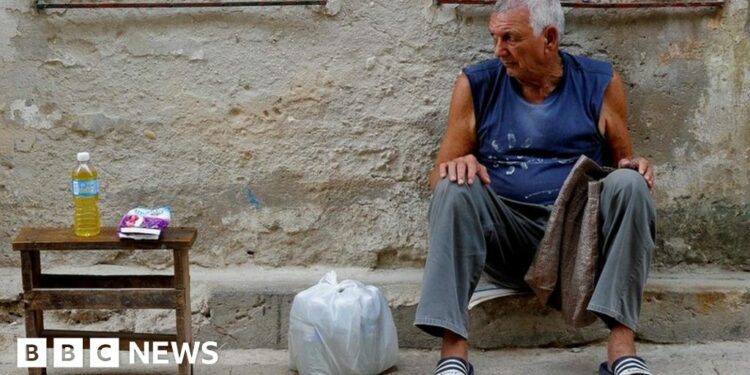The US has for the first time abstained from voting against an annual UN resolution calling for an end to its economic embargo against Cuba.
US Ambassador Samantha Power said the historic decision reflected the new policy of engagement over isolation.
Diplomatic ties were restored last year but Republican-controlled Congress opposes lifting the longstanding embargo.
The vote passed overwhelmingly, with the support of 191 countries.
Only Israel abstained alongside the US.
The UN General Assembly has voted to approve the resolution every year since 1992, and the US has always strongly opposed it.
“After 55-plus years of pursuing the path of isolation, we are choosing to take the path of engagement,” Ms Power said.
She added, however, that the abstention did “not mean that the United States agrees with all of the policies and practices of the Cuban government”, including “serious human rights violations”.
‘An important symbol’ – Analysis by BBC Cuba correspondent Will Grant
The Cuban government views the abstention by the US as a victory. It has spent decades arguing against the economic embargo (or the “blockade” as Cuba call it), saying it is a cruel and unjust policy designed to hurt ordinary Cubans.
While this vote doesn’t have any weight in actually lifting the measure – that depends on the US Congress – it is important symbolically. It is a final message from President Obama that his administration considers the policy to be outdated and counterproductive.
“Instead of isolating Cuba” said Ambassador Samantha Power shortly before the vote, “our policy isolated the United States, including right here at the United Nations.”
Still, that view is unlikely to change the minds of the Republican leaders in Congress, such as House Speaker Paul Ryan, who have vowed to keep supporting the embargo as long as they’re in office.
The future of the US embargo on Cuba – as well as so much else – now hinges on November’s election.
The decision at the UN General Assembly led to immediate protest from US politicians opposed to lifting the embargo.
Texas Republican Senator Ted Cruz tweeted that the act imposing sanctions on Cuba was “the law of the United States, which should always be defended and upheld”.
Cuban Foreign Minister Bruno Rodriguez said Cuba was “grateful” for Ms Power’s efforts.
“A change in vote by the United States is a promising signal,” he said. “We hope it will be reflected in reality.”
While UN resolutions of this type are non-binding and non-enforceable, the annual resolution has for 25 years allowed Cuba to demonstrate that global opinion is against America’s Cuba policy.
Cubans say the embargo prevents sick people from being treated with much-needed US medical equipment and farmers from modernising their agricultural methods.
“There isn’t any Cuban family or sector in our country that has not suffered from its effects,” Mr Rodriguez said.
Source link : https://www.bbc.com/news/world-us-canada-37784136.amp
Author :
Publish date : 2016-10-27 03:00:00
Copyright for syndicated content belongs to the linked Source.












